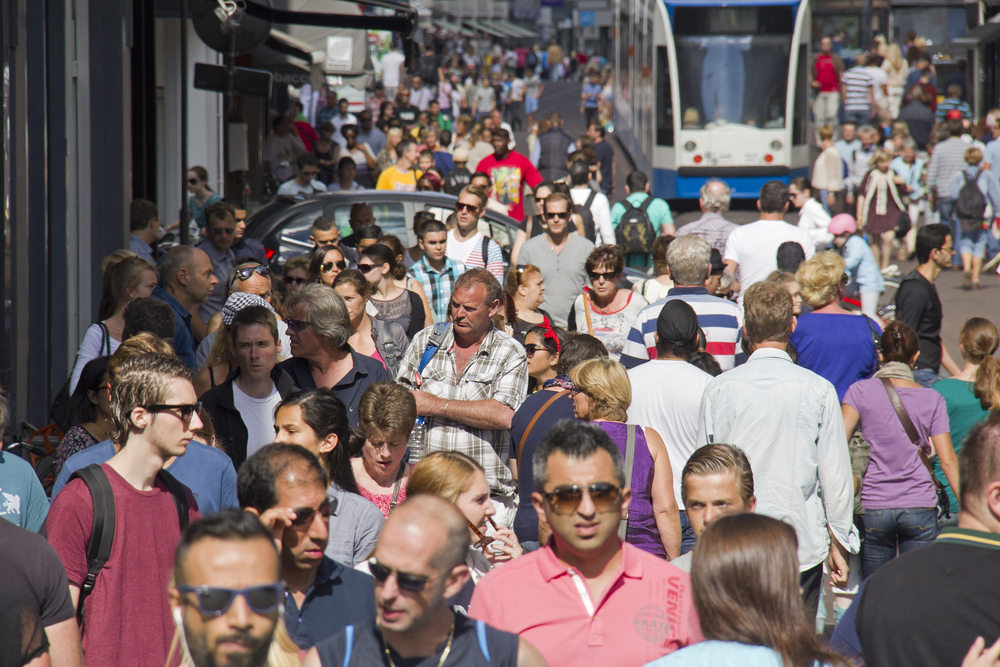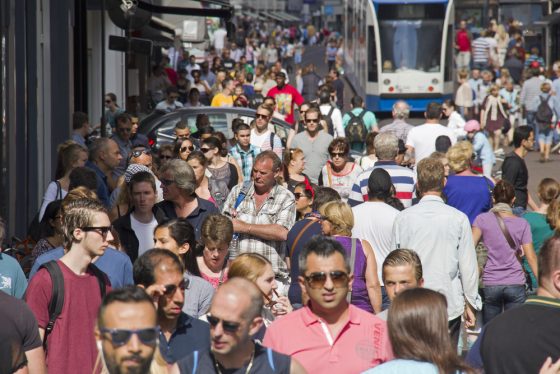The government needs to tackle social inequality


The coalition government should stop kowtowing to right-wing politicians and concentrate on tackling social inequality, say Leiden professor Leo Lucassen.
Now that the dust has settled on the latest ‘refugee crisis’ the conclusion has to be that the predicted, sometimes apocalyptic, consequences have failed to materialise.
Societies in Western Europe have not been disrupted and in Germany, the country which has taken in most refugees by far, most of the 1.2 million immigrants are in work.
There are, of course, adjustment problems on both sides, with specific groups of asylum seekers (who have no hope of winning refugee status) showing criminal and anti-social behaviour but, all in all, it appears that a demographically declining Europe is perfectly able to absorb these numbers.
Not that this should have come as a surprise. A bit more historical awareness could have told us so in 2015. In the 1990s more asylum seekers, both in absolute and relative numbers, came to the Netherlands and Germany. Then, as now, they came mainly from the Middle East (Iran, Iraq and Afghanistan) and the Horn of Africa (Somalia).
The only exception were the (former) Yugoslavians, who made up about one fifth of the total. Most of these immigrants and their children managed to find their place in Dutch society to a reasonable extent, despite a not exactly proactive integration policy.
The alarmist noises made by politicians in 2015 were not just the result of a deficient collective memory. Since the beginning of the century, when immigration remained relatively low for decades, a number of things have changed.
European border policy changed, for one. The gradual introduction of free movement within the EU made it more difficult to travel to Europe. That privilege was granted only to those who had a visa.
When, from 2013, numbers started to climb significantly, asylum seekers were confronted by a strict document border. That meant they turned to profiteers in Turkey and North Africa asking huge sums to send them to Greece, Italy or Spain in overcrowded and rickety boats. People trafficking is the flipside of the strict border policy.
The fear of asylum seekers was whipped up even further by a successful framing exercise by the radical right. The wave of attacks by – Europe bred – Islamic terrorists and increased Islamophobia in the wake of 9/11 put new asylum seekers in a completely different light.
Vicious
Although protests against refugee centres were not uncommon during the 1990s, they turned much more vicious 20 years later. Not only would the cost of accommodating refugees make the welfare state unaffordable, the ‘Islamic population influx’ (Geert Wilders) would launch a frontal attack on ‘our’ society’s intrinsic values.
The appeal of this radical right-wing spectre is rooted in the economic and social effects of globalisation and the broad political support for the (neo liberal) pro-market policies. While many people felt themselves to be on the right side of globalisation during the 1990s, the turn of the century has seen lower skilled people in particular experiencing the harsh winds of growing social inequality, a flexible labour market and drastically diminishing social housing.
Inequality
Instead of demanding structural measures to combat inequality parties like the PVV, and most recently, the FvD prefer the scapegoat strategy which presents the accommodation of refugees (and migration in general) as a zero sum game: who is getting the job/affordable house, one of our own or the profiteering asylum seeker?
Meanwhile the PVV has been supporting cutbacks to social security and the privatisation of social housing for years. But that does not seem to bother PVV voters. The appeal of the simplistic, xenophobic frame is simply too great. Other parties are adopting some of its elements, VVD and CDA among them and SP and PvdA are not immune.
If mainstream politicians are serious about tackling the social problems outlined here they must refuse to be drawn in by the scapegoating of the radical right and concentrate on the real causes of social inequality. Even the VVD could turn this to its electoral advantage in the long term.
Leo Lucassen is research director at the International Institute of Social History and professor of Global Labour and Migration at Leiden University
This column was published earlier on RTLZ
Thank you for donating to DutchNews.nl.
We could not provide the Dutch News service, and keep it free of charge, without the generous support of our readers. Your donations allow us to report on issues you tell us matter, and provide you with a summary of the most important Dutch news each day.
Make a donation